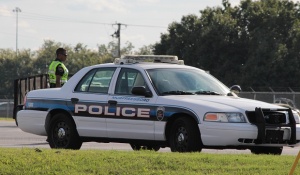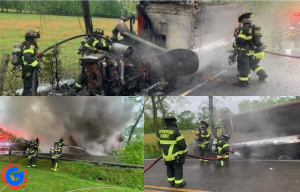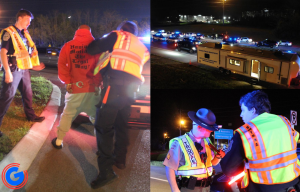In 2009, Edward M. Yarbrough, U.S. Attorney for the Middle District of Tennessee, announced a 64-count indictment, returned by a federal grand jury in Nashville, charging nine individuals with the commission of violent crimes in furtherance of racketeering activity. These crimes included murder, kidnapping, assault with a dangerous weapon, attempted murder, conspiracy to possess firearms in relation to violent crimes, and conspiracy to distribute drugs. U.S. Attorney Yarbrough stated in a 2009 media release: “The indictments represent the culmination of a great deal of hard work by the Murfreesboro and Nashville Police Departments, agents of the ATF, TBI and federal prosecutors. Their cooperation has produced an investigation that reveals unacceptable violence and lawlessness in our community. These defendants and others like them will be aggressively prosecuted so that innocent citizens will no longer fear gang violence on their streets and in their homes.”
In the aftermath of the violence in 2008 and the subsequent prosecution in 2009, the Murfreesboro community recognized the need for the development of a strategy to attack gang activity head-on. The Community Anti-Drug Coalition of Rutherford County (CADCOR), in partnership with the Murfreesboro Police Department, Rutherford County Juvenile Court, The Guidance Center, Middle Tennessee State University (MTSU), and Murfreesboro City Schools, developed a multi-pronged approach to prevent gang involvement and investigate gang-related crimes.
CADCOR applied for the Targeted Violent Crime Reduction Grant from the Tennessee Office of Criminal Justice Programs (OCJP) whose goal is to improve the quality of life by reducing violent crime on local and state levels. The grant was awarded and the program was initiated in January 2011. “Using data to drive its strategies, Murfreesboro leveraged resources at hand to create a collaborative, multi-pronged approach to a particular crime problem in its city. Starting from the initial discussions, the City of Murfreesboro has been cooperative and engaged with the State in implementing this project.” said Bill Scollan, Director of OCJP. Scollon continued: “Collaboration is relatively new to the criminal justice system but Murfreesboro has received the highest marks in their ability to collaborate. The credit for this should go to the Police Department and Housing Authority for spearheading the effort, to the agency partners for relinquishing control and to the individuals who have maintained a spirit of cooperation. Turf issues typically seen in government and the private sector did not appear to be present here.”
The MPD recognized the need to address gang issues with a two-prong approach. As with most crimes, prevention is an important investment into the future success of reducing crime and is the first part of the Department’s strategy. The Department selected two officers to attend Gang Resistance Education And Training (GREAT) school and assigned them to work in four city schools. Their goal was to develop positive relationships with students, especially at-risk youth susceptible to gang initiation and instruct a curriculum designed to instill good decision making skills with an emphasis on an anti-gang agenda. The GREAT program has expanded to include all City schools. Over 600 students have now successfully completed the program. Sergeant Greg Walker, who supervises the program, stated “This program has many intended and unintended benefits that children and families will benefit from for the rest of their lives. These officers truly make a difference in gang prevention and improving the chances of at risk youth for opportunities for success. We have been largely successful at identifying at-risk youth and providing individual intervention for them and their families through home visits.” Chief of Police Glenn Chrisman stated: “Dr. Linda Gilbert, City Schools Director, has been very supportive of the program from its inception and has reported success in the classroom with several of the at-risk youth. Preventing and reducing juvenile gang membership and activity is critical to any long-term strategy to reduce gang violence.”
The second part of MPD’s strategy was to create an investigative and enforcement unit within the Criminal Investigation Division with a focus on gang related criminal activity and prosecution. The unit created and continuously updates intelligence information based on arrests and prosecutions, investigations, field interviews, field reports, and intelligence received from other partners. Utilizing this information, the Gang Unit’s objective is to create a disruptive environment by targeting “gang affiliated” individuals for monitoring and aggressive enforcement. The unit actively collaborates with neighborhood groups, probation and parole, and juvenile court to enhance enforcement strategies. This team of detectives is responsible for 383 criminal charges against 234 individuals. While not all were gang related, many involve drug violations, probation violations, and weapons charges. The unit is also responsible for recovering stolen weapons, bullet proof ballistic body armor, and the confiscation of illegal drugs. Sergeant Jeff Keaton, supervisor for the investigative team stated: “We investigate and prosecute anything from graffiti to violent crimes. We work with the District Attorney’s office to prosecute gang related crimes with the goal of ensuring offenders receive the maximum sentence possible.”
The Rutherford County Juvenile Court also plays a crucial role in the program. The Juvenile Court Liaison (hired as a full-time employee of the Guidance Center) connects young offenders to an assessment and an intervention plan and corresponding services. In collaboration with the Juvenile Court, the Liaison attends weekly dockets and Judge Donna Scott-Davenport refers at-risk delinquents to the Liaison for follow-up.
Middle Tennessee State University Assistant Professor Kathleen Darby, PhD, (Department of Social Work) and Assistant Professor Tom Jurkanin, PhD, (Department of Criminal Justice Administration) are the Project Evaluators and oversee the data collection and reporting for the grant. Dr. Darby stated: “The performance measures in the grant demonstrate the statistical need for this type of project. It reinforces what communities have been reporting to law enforcement and provides police with a data driven approach to reducing violent crime.”
Other partners associated with the grant include the following: Rutherford County Detention Center, Juvenile Probation, Guidance Center, CADCOR, Youth CAN, Exchange Club Family Center, Greenhouse Ministries and Middle Tennessee State University.
Director Bill Scollon concluded in a recent review of the program: “The effectiveness of this program can only be projected at this time, however the initial data submitted by the MTSU researchers show these prevention strategies to be promising. The short term data around arrests show a greater ability to identify criminal gang-related behavior and mitigate the problem through arrest. Since this is a proactive law enforcement strategy we are happy to see arrests rise each of the three years. Finally, the Office of Criminal Justice Programs is happy to see that the majority of strategies employed in this project will be continued without further grant funding. Therefore Murfreesboro receives high marks in all areas of our review including strategic planning using data to drive responses, new community partnerships and collaboration, crime reduction and sustainability after the grant is completed.”
Source:
MPD Sgt. Kyle Evans












